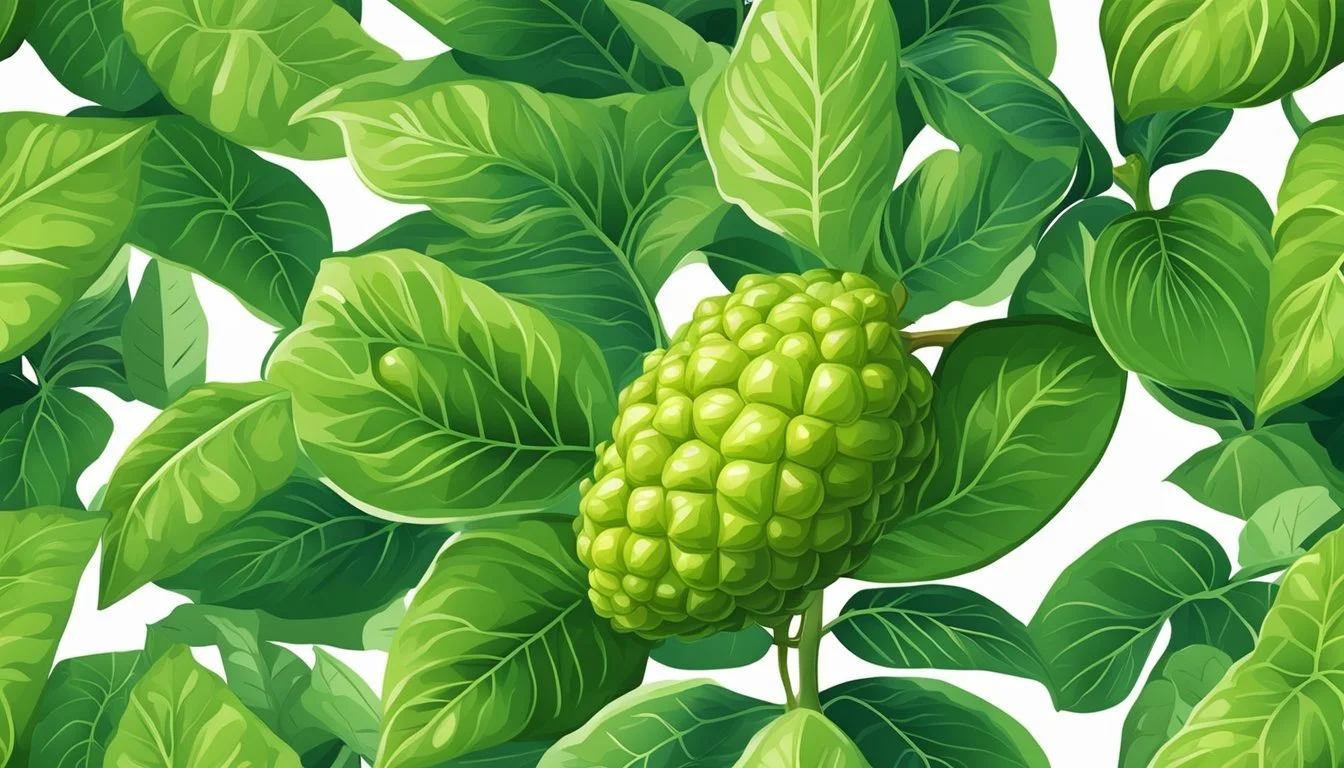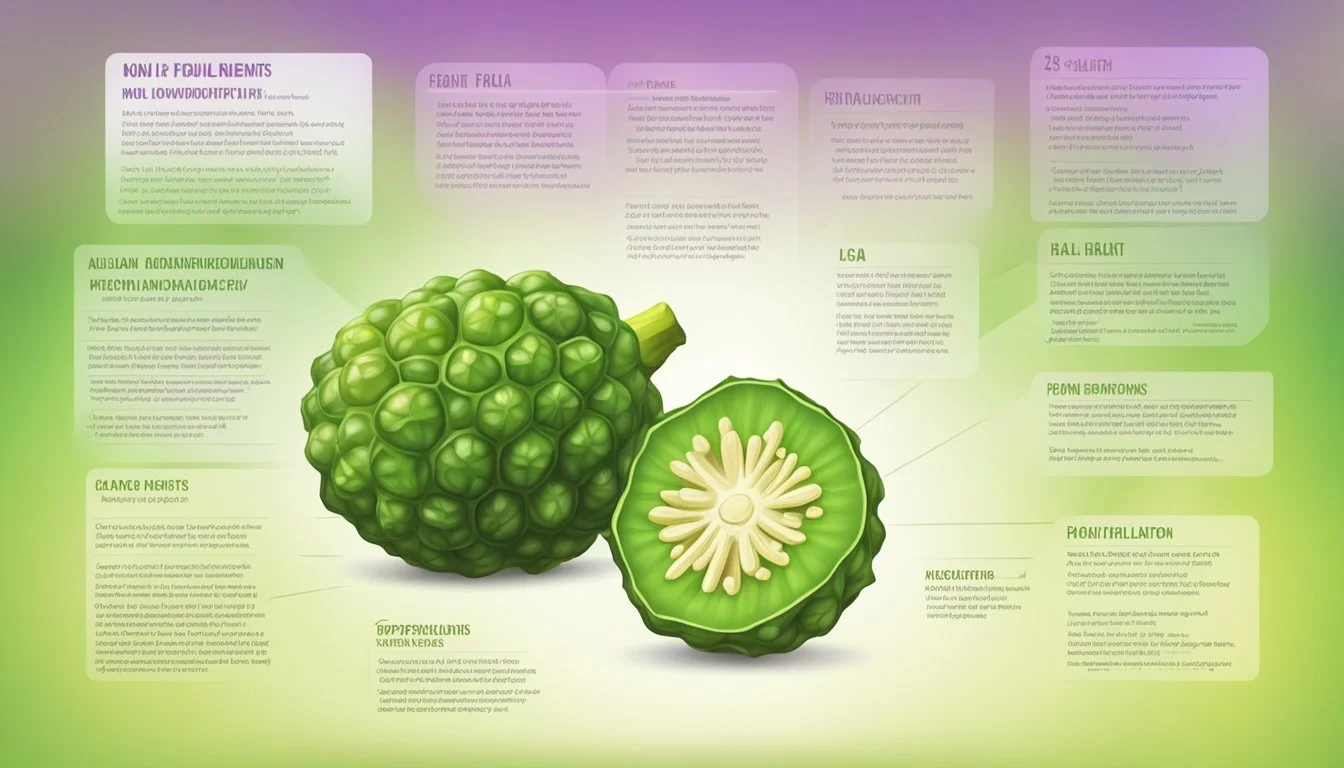What Are the Health Benefits of Noni Fruit?
Uncovering Nutritional Advantages
Noni fruit (What wine goes well with fruit?), derived from the Morinda citrifolia tree, has been traditionally used in Polynesian cultures for its medicinal properties. Over time, its uses have garnered attention in the wellness community globally. With research substantiating various claims, noni fruit is now considered a source of potential health benefits.
Scientific studies indicate that noni fruit may enhance the immune system due to its rich composition of antioxidants. These nutrients combat oxidative stress within the body and might contribute to improved overall health. Furthermore, the noni fruit's analgesic and anti-inflammatory effects suggest it could aid in pain management and support individuals dealing with various types of discomfort.
In terms of long-term health, noni is observed to have properties that might support cardiovascular health. Some studies have found that it could help lower blood pressure and prevent the absorption of LDL cholesterol, thereby reducing the risk of heart-related conditions. As an addition to a balanced diet, the noni fruit represents a promising natural supplement for health maintenance and disease prevention.
Nutritional Profile of Noni Fruit
Noni fruit, known scientifically as Morinda citrifolia, is a source of essential nutrients and offers a unique composition that supports various aspects of health. This section details the key vitamins and minerals present in the fruit, as well as its caloric content and macronutrient distribution.
Key Vitamins and Minerals
Noni fruit is particularly noted for its high vitamin C content, an antioxidant that supports the immune system and skin health. In addition to vitamin C, Noni contains a spectrum of B vitamins including thiamin (B1), riboflavin (B2), and niacin (B3), which play roles in energy metabolism and overall cellular function.
Potassium: An important mineral for maintaining proper heart and muscle function.
Calcium: Essential for bone health and muscular function.
Sodium: Present in minimal quantities, aiding fluid balance and nerve function.
Caloric Content and Macronutrients
100 grams of Noni fruit holds a relatively low energy value, containing around 15.3 calories. This makes it a low-energy-density food which can fit well into a weight management diet.
Macronutrient Distribution:
Protein: Approximately 0.43 grams, important for tissue repair and growth.
Carbohydrates: 3.4 grams, with 1.49 grams of this being sugar, play a pivotal role as an energy source.
Fiber: About 0.2 grams, beneficial for digestive health.
While the macronutrient content exhibits its role in providing energy and supporting bodily functions, the minimal presence of fat indicates its suitability in low-fat diets. Noni fruit is a nutrient-rich option that contributes to a balanced diet and supports overall health through its vitamin, mineral, and antioxidant composition.
Health Benefits and Medicinal Use
Noni fruit, traditionally used in Polynesian cultures, is celebrated for its health benefits, particularly in immune support and anti-inflammatory properties. Modern research has begun to validate some of these uses, drawing attention to its potential in a variety of health-related areas.
Immune System Support
Noni juice is high in vitamin C, which is essential for the maintenance of skin and immune health. Scientific research suggests that compounds found in noni can enhance immune system functionality, potentially offering protection against health issues associated with a compromised immune system.
Antioxidant Capacity: Noni juice exhibits significant antioxidant activity, which is crucial for defending against oxidative stress that can damage DNA and other cellular components.
Anti-Inflammatory and Analgesic Effects
Noni has exhibited anti-inflammatory properties that may aid in reducing pain and discomfort associated with conditions like osteoarthritis. Compounds such as scopoletin have been identified in noni with antifungal and antibacterial properties, further contributing to its analgesic and health-promoting profile.
Scopoletin: Known for its anti-inflammatory effects and ability to regulate blood pressure.
Chronic Conditions: Useful in the management of inflammation-related diseases, potentially aiding in wound healing and digestion.
Cancer Prevention Potential
Some studies have investigated noni's potential in cancer prevention, looking at its bioactive compounds. Though no definitive conclusions can be drawn, early research indicates that noni may play a role in reducing the risk of certain diseases, including liver disease and cancer, by protecting against cellular changes and promoting healthy collagen production.
Antioxidant Activity: Works to neutralize free radicals that can cause cellular mutations leading to cancer.
Bioactive Compounds: The potential for these compounds to help prevent changes at a cellular level that could lead to malignancies.
Heart Health and Blood Pressure Regulation
Noni juice's impact on heart health is attributed to its potential to manage cholesterol levels and high blood pressure. Observational studies and traditional usage suggest that noni can support cardiovascular health by improving the regulation of blood pressure and possibly reducing triglycerides.
Cholesterol Management: Certain compounds in noni might help manage cholesterol, a key factor in heart health.
Blood Pressure: The presence of scopoletin in noni has been connected with blood pressure regulation properties.
Safety and Consumption Recommendations
When considering the incorporation of noni fruit, scientifically known as Morinda citrifolia, into the diet, it is crucial to assess safety aspects and adhere to suggested dosages to avoid adverse effects. Noni fruit is traditionally from Polynesia and is now available as juice, puree, powder, and capsules in health food stores.
Appropriate Dosage
Juice: Up to 750 milliliters per day
Capsules/Powder: Follow the manufacturer's recommended serving
The dosage for noni fruit products such as juices or capsules should be determined based on manufacturers' recommendations and health guidelines. Studies have indicated that consuming up to 750 milliliters, which is a little over 25 ounces of noni juice daily, may be considered safe for most individuals. However, this quantity may contain a significant amount of sugar, which should be accounted for in the diet, especially for individuals monitoring calorie intake for health issues like obesity or diabetes.
Potential Side Effects and Interactions
Side Effects:
Mild: Constipation, diarrhea, or upset stomach
Severe (Rare): Liver toxicity
Interactions:
Medications: Check with a healthcare provider as noni may interact with certain drugs.
Health conditions: Individuals with kidney problems or liver disease should consult a doctor before consuming noni products.
Noni contains antioxidants and may offer health benefits, such as reducing fatigue and arthritis pain, but it is also important to recognize potential side effects. Most individuals tolerate noni well, but some may experience gastrointestinal issues such as constipation or diarrhea. Rarely, liver toxicity has been reported, especially in cases where noni is consumed in large amounts or by individuals with existing liver diseases. Those with health issues, such as heart disease or existing high levels of fat in their diets, should consult healthcare professionals to ensure noni products are safe for them. Smokers or others exposed to environmental toxins should also be cautious due to the potential for increased vulnerability to toxicity.
Frequently Asked Questions
Noni fruit has garnered attention for its potential health benefits. These frequently asked questions aim to shed light on the specifics of how noni fruit can contribute to wellness.
What potential skin benefits can be derived from consuming noni juice?
Consuming noni juice may benefit the skin by enhancing its health and appearance. The juice is known for its anti-inflammatory and antioxidant properties, which can potentially aid in reducing skin aging and improving skin disorders.
What are the known side effects associated with consuming noni juice?
Noni juice can cause side effects such as diarrhea and bloating, especially when consumed in excessive amounts. Individuals with kidney problems should be cautious as noni contains high levels of potassium.
How can noni leaves be utilized for wellness and what benefits do they offer?
Noni leaves can be used to make tea or can be applied topically as poultices. They offer benefits including pain relief and anti-inflammatory effects, which may help in conditions like arthritis and muscle aches.
Are there specific health conditions that noni juice is believed to alleviate?
Noni juice is believed to benefit individuals with conditions such as high blood pressure, joint pain, and immune system deficiencies. Some studies also suggest it could aid in managing diabetes.
What is the recommended daily intake of noni juice for optimal health benefits?
The recommended daily intake of noni juice has not been officially established. However, common practice suggests that consuming 1-4 ounces per day may offer health benefits while minimizing potential side effects.
What are the possible health risks or contraindications when taking noni?
Possible health risks associated with noni include liver toxicity in rare cases, especially with excessive consumption. Pregnant and breastfeeding women, as well as people with liver disease, should avoid noni. It is also contraindicated for those with hyperkalemia due to its high potassium content.




